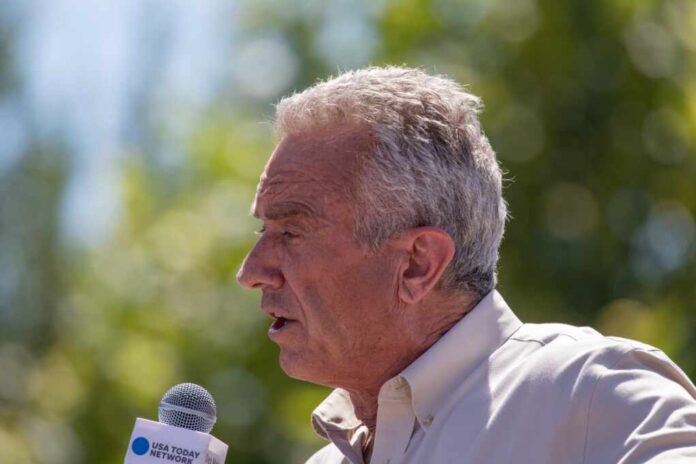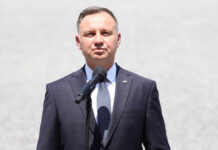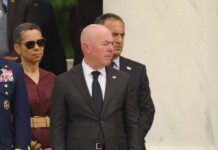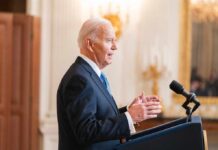
Robert F. Kennedy, Jr., a presidential candidate running as an independent, recently doubled down on his support for Israel while criticizing the ongoing efforts to reach a ceasefire in the conflict in Gaza.
Kennedy has supported the Jewish state in its retaliation against the Palestinian terrorist group Hamas, which killed and kidnapped more than a thousand innocents in a surprise massacre on Oct. 7, 2023. The Israeli military has been leading an offensive in the Gaza Strip ever since, determined to wipe out the terrorist organization.
However, the nation’s response has been seen as excessive, considering the thousands of civilians who have been killed and displaced due to the attacks.
Speaking to Reuters on March 20, Kennedy said he does not “even know what that means right now” when asked his thoughts on a temporary ceasefire in the Middle East. He said that, in previous conflicts, Hamas has used lapse in fighting to “rebuild” in order to “launch another surprise attack.”
The presidential candidate further argued that it was not Israel’s fault or decision that led to the ongoing war but Hamas that had built up a reputation of terror and rejected the proposal for a two-state solution to the conflict.
Kennedy said that, if there were “any other nation” neighboring Gaza, there would have been a swift effort to “level it with aerial bombardment.” But Israel, he pointed out, is “a moral nation” and decided against this course of action. Alternatively, the Jewish state “built an Iron Dome” for protection and to ensure it “would not have to go into Gaza.”
Additionally, Kennedy said that the devastating attack last year inevitably led to Israel’s unceasing strikes in the Gaza Strip. He has shared similar sentiments since the massacre took place more than five months ago.
The independent candidate’s comments come as the United States seeks to help negotiate a ceasefire between the fighting nations, with little success. Secretary of State Antony Blinken has traveled to the Middle East six times since the war began, trying to develop both a long-term plan for peace between Israel and Gaza as well as negotiate terms for an immediate ceasefire.
Sec State Blinken says US has immediate ceasefire resolution in front of UN Security Council
I agree
Immediately after Israel deals w/ the Hamas terrorists in Rafah pic.twitter.com/fNEqpU736d— Jim Hanson (@JimHansonDC) March 21, 2024
While the United States is backed by key negotiating Middle Eastern countries like Saudi Arabia in its efforts to establish a two-state solution, Israeli Prime Minister Benjamin Netanyahu has firmly rejected the idea.
Since the initial attack in October, the Jewish state’s leader has shared his determination to completely destroy Hamas in order to put an end to its terrorism and refused to consider a ceasefire deal that would involve any relationship between the two enemies.

































